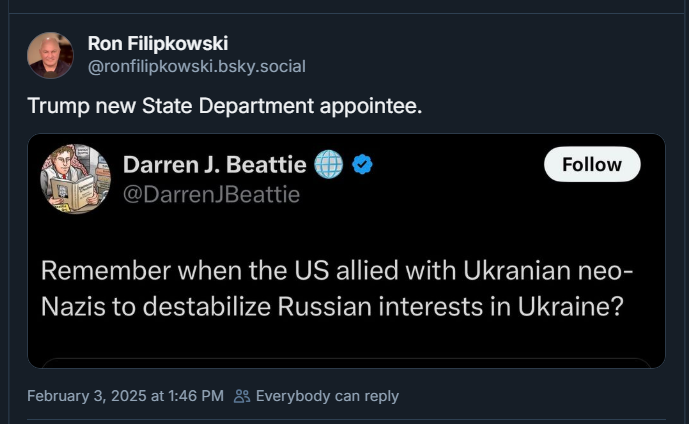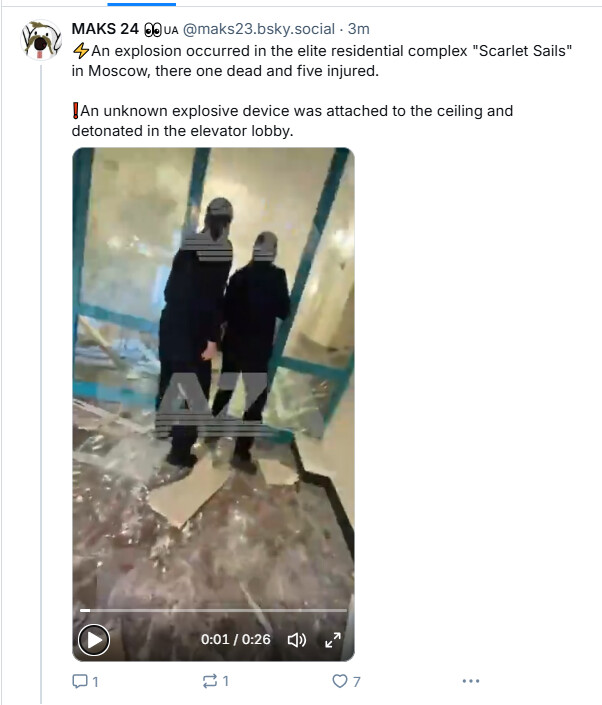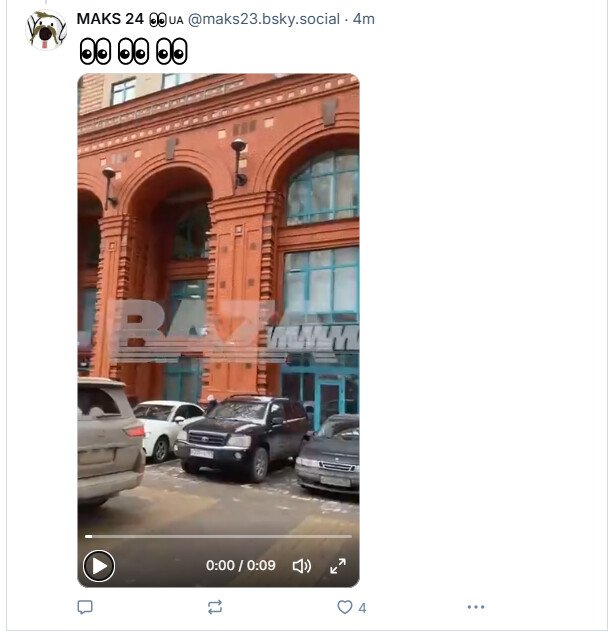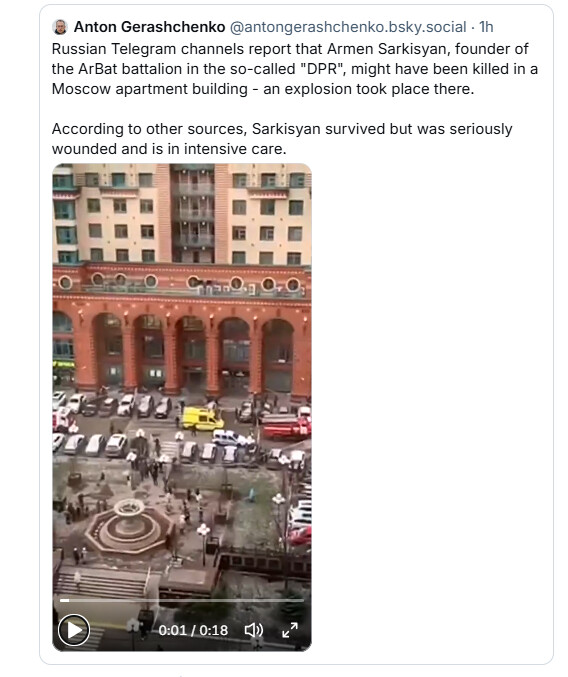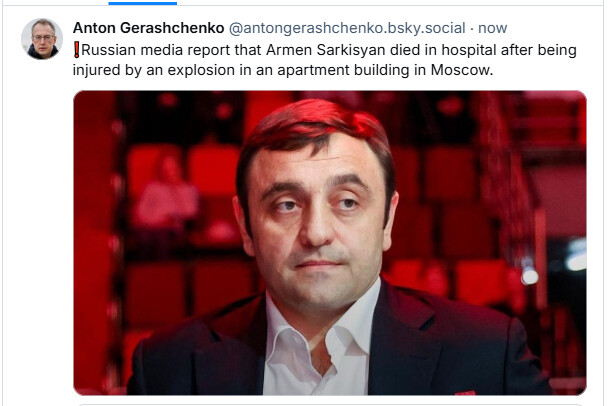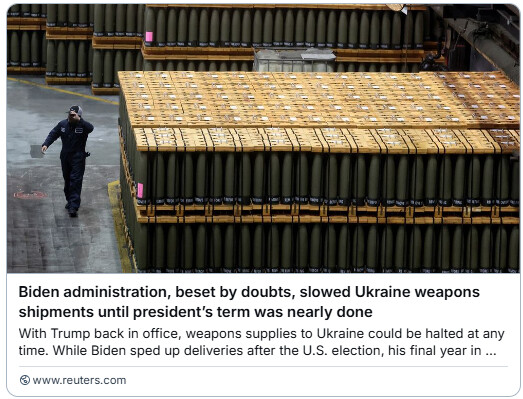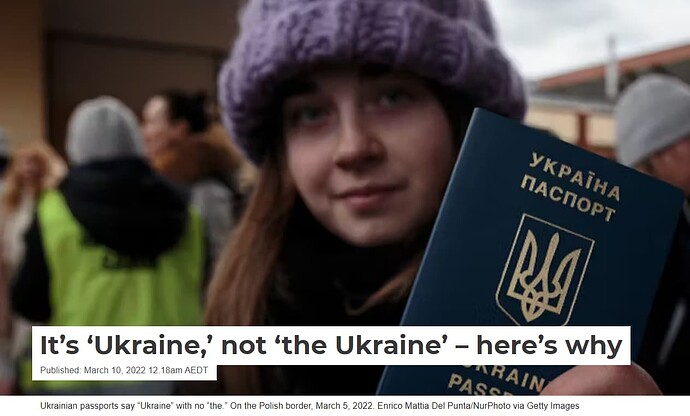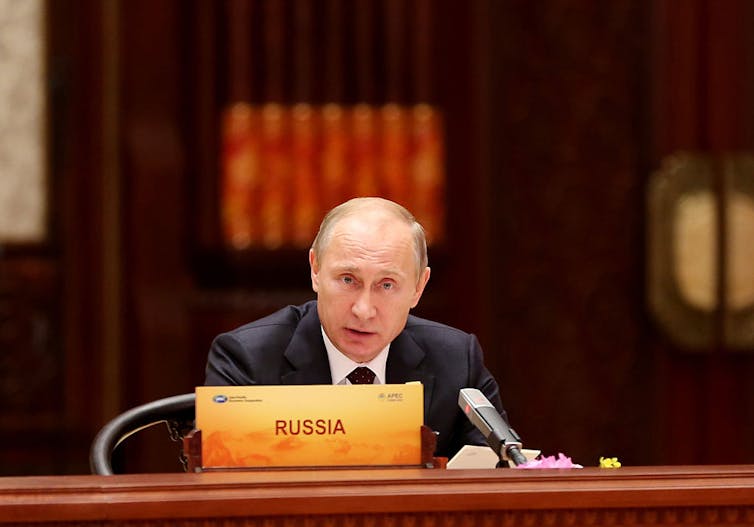I guess someone needed correction?
Your ability to ‘see things from every perspective’ appears to just be able to remove Ukraine having an agency from your world view to justify Russias use of lethal force on an independant nation.
Thing is, that take is pretty deeply researched, but it’s from an information environment which is coming at events from a distorted perspective. I’ve seen those talking points a number of times over the last 3 years and it’s not easy to find the messy balanced shades of grey that the reality on the ground is like.
I genuinely appreciate @Unegg from coming into this space and having a pretty healthy conversation about what’s going on. It’s a very easy thing to not test your take on an issue, so I respect the discussion.
Upgrade of weapons stocks and funding of their military industrial complex
Unegg has said a few times they don’t approve the invasion
That’s a leap of logic.
I’m more concerned that Ukrainian ‘agency’ will be misplaced as the people are just collateral in a bigger game. Much like how Afghanistan had such joyous ‘agency’ after Russia and the US helped to embolden an extremist movement to bring fanaticism to its people. Surely the only true agency for Ukraine is to remain neutral and avoid being sitting ducks in a big dumb ■■■■ measuring contest. Fanatical groups are very opportunistic when chaos reigns in a region and the people seek strongholds of militarised ‘revolutionaries’.
Compared to what the USA spends on military equipment domestically, what is going to Ukraine is a drop in the ocean.
FFS. Biden thought he was competent enough to go on. That decision gave the world the second term of Trump. This miserly titration of aid is yet another terrible misjudgement of his administration.
If “beset by doubts” they should have decided to get the strongest candidate for the elections. Before that, their DoJ should have used their 4 years in office to prosecute Trump for all the crimes he committed.
Yeah nah.
Russia wanted it, so they tried to take it.
All other factors are fighting over their share of the final 1% of the reasons behind it.
The difference between reasons, and excuses.
Also where did the “neutral” Yanukovich flee too and find shelter after trying to turn the troops on his own people during Euromaidan?
The leap you seem to make is from some general talk of all the US shitfarkery so everyone agrees to your very pedantic point on a RW group meeting being some magical driver of Maidan under some weird neo nazi US CIA plan. The US have participated in many regime and political games… as have Russia and nowadays China. Pinning the Ukraines peoples rejection of authoritarianism in the hopes of joining the EU way, and therefore logically considering how they defend themselves from the devil they know so well who took away their nukes and agreed to never invade again lol, as the fault of the US and nato pushing russia to the edge, which again in itself is only a problem IF you plan to invade ukraine or attack some other western nation.
It’s good to debate but it’s really hard to put much blame here on the states given what Russia have directly done to Ukraine in the past, the scorched earth their causing now and so on. It’s good to read varied accounts but pretty sure these days i can google up an independent political scientists to present any view I’d like to adopt, I’d really rather not.
Ukraine is/was valuable land. Putin’s failing empire wanted it for it’s economy and to make him stronger in his mind. He got rejected hard in what he thought was an easy kill. The rest, is just excuses. ‘It’s the economy stupid’.
I love this thread. Thanks to all.
The EU has come to the rescue of Transnistra after Ukraine ceased to supply via Gazprom ( with Russia meeting the cost). Since then, there was only intermittent electricity for lighting and next to no heating in the breakaway region.
The EU has granted €30 million to Moldova to purchase gas for Transnistra on the European market.
In this case “The Ukraine” has traditionally been used to diminish Ukraine as just a region of Russia. That nuance doesn’t mean much to us, but to the Ukrainian people it has a huge significance.

For most of the 20th century, English speakers referred to “the Ukraine,” following Soviet practice. That’s not the case now. Ukraine’s official name in English does not include “the,” and for good reason.
Ambassadors, commentators and historians have tried to explain the change, but not everyone has gotten the message.
So let me try. I’m a linguistic anthropologist and an expert on language politics in Russia. I’m also bilingual in Russian and English, so I understand the subtleties of the distinction.
What is at stake? Nothing less than the political sovereignty of Ukraine. Yet in their coverage of the current crisis, some journalists and commentators still refer to events unfolding “in the Ukraine.”
It might seem innocent, but it’s not.
For Russian President Vladimir Putin, it’s ‘the Ukraine.’ That’s political. Lan Hongguang/Xinhua/Pool/Anadolu Agency/Getty Images
It’s Russian and English too
Both the Russian and English languages make subtle distinctions between territories that are politically delimited and territories that are not. In Russian, people refer to events happening “na Ukraine” or “v Ukraine.” Russian language teachers usually explain the difference between “na” and “v” as the respective difference between “on” and “in.” One places the ketchup “na” the table and puts it away “v” the refrigerator.
Things get a little more complicated when describing larger spaces. In Russian, a person is “na” an unbounded territory, such as a hill, but “v” a bounded territory that is defined politically or institutionally, such as a nation-state. This distinction between unbounded and bounded territories holds even when English speakers would universally use “in.” So a person is “na” the Caucasus (“in the Caucasus”) but “v” Germany (“in Germany”).
English makes this distinction not with different prepositions but with the definite article “the.” English speakers use “in” before the name of a politically defined unit such as a nation or a state, and “in the” for a territory that is not politically defined. Hence, “Last week I was in Kentucky,” or, “Last week I was in the Bluegrass region.”
“Last week I was in Ohio” is fine, but if I turn to a friend and say, “Last week I was in the Ohio,” she might reasonably think I was in the waters of the Ohio River, on a cold swim.
There are exceptions, but these are the general principles that bind speakers of Russian and English.
The distinction is critically important for the sovereignty of the Ukrainian nation-state, suggesting as it does that Ukraine is either a bounded nation-state – like Germany – or a region of Russia with amorphous borders – like the Caucasus. This is why, in 1993, Ukraine’s government asked Russia’s government to abandon the Soviet-era practice of referring to Ukraine as “na Ukraine” and use only “v Ukraine.” The na construction is, however, still widely used in Russia.
To a Ukrainian worried about the nation-state’s territorial integrity, that little word “the” might suggest that the speaker does not much care whether Ukraine is an independent state. Like it or not, and intentionally or not, the language a person uses reflects their political positions, including their position on Ukraine’s territorial sovereignty.
So, does Putin say na Ukraine – “in the Ukraine” – or v Ukraine (“in Ukraine”)? In a subtle twist of diplomacy, the English-language translations of Putin’s recent addresses have him describing “the events in Ukraine”, even though he says “na Ukraine” in Russian throughout his addresses.
Even Putin’s translators see the benefit of sticking with the official English-language name of Ukraine. Perhaps they hope it will make the content more palatable to a Western Anglophone audience. But make no mistake: Putin is arguing that Ukraine’s sovereignty is a historical fiction, and he is underscoring his point by referring to events happening “na,” not “v,” Ukraine. English speakers don’t have to follow him by saying “the.”
The EU has come to the rescue of Transnistra after Ukraine ceased to supply via Gazprom ( with Russia meeting the cost). Since then, there was only intermittent electricity for lighting and next to no heating in the breakaway region.
The EU has granted €30 million to Moldova to purchase gas for Transnistra on the European market.
why in the world would the EU be bailing out a failed Russian takeover territory? They should let it fail so the people there could get rid of the Russian occupiers
The 30 million is meant to be going to Moldova and they are only meant to be passing along some of it.
I agree though it’s a bizarre setup and I think most would love to see the Russians sent packing
Moldova proper was also suffering shortages after Ukraine wouldn’t allow the transit of Russian gas. Now the Transnistrian civilians can get some electricity and heating via the EU. They can no longer rely on Russia.
